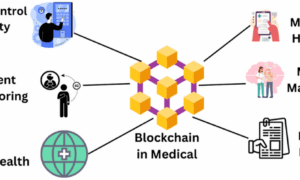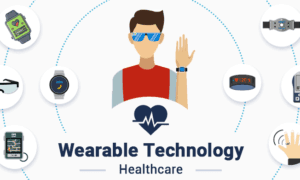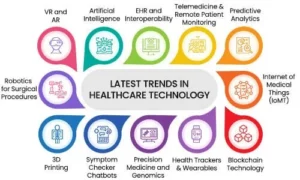At the heart of every great healthcare conference lies a paradox—how do we embrace both the precision of science and the emotions of the human heart? The Global Health Congress 2025, taking place November 1–2 at the prestigious Yale Club in New York City, thrums with that very tension. The air hums with conversations between physicians and data scientists; startup founders and ethicists; dreamers and pragmatists. Screens glow with simulations of genomic therapies while, just a room away, a quiet discussion unfolds about the limits of technology when compassion falters. Here, faces lit by presentations merge with the voices discussing innovation and human suffering entwined in the same breath. Amid all these dazzling breakthroughs, a deeper question rises: what truly drives us to gather?
Philosophy at the Heart of Healthcare
Conferences like the Global Health Congress are not just marketplaces of innovation—they are crucibles where humanity faces itself. In one session, Gautam Bazaz, an accomplished business strategist and investor serving as CEO and Founder of Amarnath Partners, challenges attendees not to see innovation as invention alone, but as responsibility. A graduate of Carnegie Mellon University and getting his MBA from Duke University, Gautam brings deep expertise from his diverse background—spanning leadership roles at Shorelight Education, Booz Allen, JPMorgan, Holtec International, and Vanguard. Gautam has advisory and investment platform accelerating growth through sales and investment for his clients.. Now, as a key architect behind the Congress’s Venture Forum, he reminds the audience, “Progress is not measured in patents, but in people whose lives we change.” His combination of operational insight with investment acumen helps turn complex ideas into sustainable, high-impact ventures that bridge industry innovation and real-world outcomes.
At another session, Abhishek Shankar, a three-time founder and currently CEO of MyBabyBridge, reflects on his mission to revolutionize IVF and reproductive healthcare through AI and data-driven tools. With over 17 years of experience in the technology and healthcare industry, Shankar is transforming fertility care by making it affordable, patient-centered, and more successful. His journey—from founding Alive AR Platform (acquired by Times of India) and Adstuck Big Data Platform to building MyBabyBridge—has been driven by a singular vision: using cutting-edge technology to solve critical healthcare gaps. He authors pieces that translate complex healthcare advances, such as embryo-selection AI, into practical, actionable takeaways for patients and providers, driving the adoption of transformative technologies across the fertility landscape. Studies show AI-assisted embryo selection can predict pregnancy success with up to 82% accuracy, outperforming traditional methods that see only 65% agreement among embryologists. “In every statistic,” he says quietly during his presentation, “there is someone’s mother, someone’s sister, someone’s story.”
Modern medicine’s soul-searching moments often occur not on PowerPoint slides but in conversations about ethics, vulnerability, and care. Dr. Nikki Bajaj, a triple board-certified Internist, Hematologist, and Medical Oncologist leading HOPE Hematology & Oncology Associates LLC in Iselin, New Jersey, shares during a plenary session the courage it takes to admit uncertainty in front of patients and peers. With extensive clinical grounding from her training at St. Joseph Regional Medical Centre and Seton Hall University, Dr. Bajaj has practiced medicine for years across New Jersey, Michigan, and Missouri—first as a hospitalist and internist, then as a specialist in Hematology & Oncology. She believes the most important aspect of cancer treatment is patient education and shared decision-making for an individualized, evidence-based, and comprehensive treatment plan. “Healthcare isn’t only about treatment—it’s about presence,” she emphasizes, reflecting on lessons from COVID-19 and the importance of being fully present with patients facing their darkest moments. The applause that follows is more than polite; it’s reverence for honesty in an age when it’s easier to promise perfection.
These are the dialogues that transform a conference into something more than a convention—they become shared reflections on what it means to heal. Post-COVID bioethics debates have brought renewed urgency to topics such as resource allocation, artificial intelligence in medicine, and the ethical implications of emerging reproductive technologies. The pandemic marked both a societal and academic turning point, serving as a catalyst for rapid development in medicine, ethics, philosophy, and regulation. Sessions addressing these themes remind attendees that true progress occurs at the intersection of science, experience, and introspection.
Embracing Failure and Uncertainty
For all the data and precision that healthcare offers, the most transformative sessions at Global Health Congress often begin with someone admitting, “We got it wrong.” Dr. Achintya Moulick, cardiac surgeon, business leader, and Co-Founder of the Global Health Congress, begins his address with humility. “Some of the best lessons in my career,” he says, “came from surgeries that tested everything I knew.” A neonatal cardiac surgeon by training with expertise in congenital and acquired heart disease, Dr. Moulick is among a handful of cardiothoracic surgeons in the world who can perform both adult cardiac surgeries and complex neonatal cardiac surgeries.
His journey—from being a founding member and first cardiac surgeon at Fortis Heart Institute in India to Director of Adult Congenital Heart Surgery at Children’s National Medical Center in Washington, DC, and later Executive Director and Chief of Cardiothoracic Surgery at St. Christopher’s Hospital for Children—reflects a lifetime dedicated to innovation and compassionate care. As former CEO of CarePoint Health System, where he led three area hospitals through the COVID-19 pandemic and guided the system’s transition from for-profit to non-profit status, Dr. Moulick understands that the future of healthcare hinges not on eliminating error but learning from it. He is also the founder and CEO of GlobeHealer, conceptualizing the idea of finite cost, quality, and transparency in healthcare. His call to embrace vulnerability resonates across the ballroom: in innovation, as in surgery, certainty kills curiosity.
This ethos extends throughout the event’s workshops and panels. At a roundtable on artificial intelligence, participants debate whether machine learning will one day replace diagnostic intuition. Rather than fearing technology, Gautam Bazaz reframes the conversation: “Technology must not make healthcare colder—it must make it bolder.” From this, the group explores stories of failed predictions and mistimed interventions, each becoming a seed for growth. A senior nurse shares a patient story about a misdiagnosis that taught her the art of listening; a biotech founder recounts the near-collapse of his company before a breakthrough born from collaboration. The message is clear: in the uncertainty between success and failure lies the humanity that binds every healthcare professional together.
The Power of Community and Collaboration
Collaboration—true, generous, human collaboration—is what gives life to the Global Health Congress. The halls of the Yale Club buzz with encounters that dissolve hierarchy: CEOs listen to medical students; policymakers debate with nonprofit founders. For Abhishek Shankar, this kind of openness is a necessity, not a luxury. “Global health equity will never be achieved by one voice,” he declares. His mission at MyBabyBridge embodies the cross-pollination the Congress champions—tackling infertility, a pressing health crisis where 95% of couples are denied IVF due to its $25,000 cost and outdated clinic practices. By leveraging robotics, AI, and automation, MyBabyBridge is breaking barriers and making fertility treatment affordable—aiming to reduce costs to as low as $4,000 per cycle while expanding to 30 clinics by year’s end. It is a reminder that innovation without empathy merely advances efficiency, not humanity.
Dr. Moulick’s vision for the Congress stems from this very belief. His leadership has long prioritized accessible and compassionate care, bridging the divide between cutting-edge medicine and community health. “We cannot innovate in isolation,” he declares during a CEO panel. “The real test of leadership is whether your innovation includes the last person in line.” Under his guidance and with partners like Dr. Bajaj and Shankar, the Congress has positioned itself not just as an event but a movement—one that insists global health must mean global solidarity.
Meanwhile, Gautam Bazaz brings moral gravity to discussions of strategic partnership and investment. Drawing on his work at Shorelight—where he leads corporate development and manages strategic investments that drive institutional growth and innovation—he reminds attendees that capital alone doesn’t change lives; vision does. “No breakthrough can succeed in isolation,” he warns during the Venture Forum. Yet his tone is not despairing; it’s defiant. He calls for alliances built on trust, transparency, and truth—where global health means partnership, humility, and shared vision.
These themes echo across events like the Health Innovation Summit, where collaboration between healthcare leaders, executives, and innovators from around the world has resulted in 130 contracts valued at $800 million since 2014. The 2025 iteration brought together 39 companies from 10 countries to showcase solutions spanning AI, digital health, neuroscience, and beyond—each tackling healthcare’s biggest pain points head-on. Similarly, the NCQA Health Innovation Summit emphasizes how modernizing infrastructure, strengthening partnerships, and addressing social and behavioral drivers of health are essential for meaningful change.
Narratives and Empathy
In a smaller breakout inspired by the principles championed by the Health Humanities Consortium, attendees sit in a circle, sharing stories rather than presenting slides. Here, the focus is on narrative medicine—the idea that storytelling and listening can be as healing as surgery or pharmaceuticals. Narrative medicine is a pedagogical framework that acknowledges and honors individual and collective narratives in clinical and academic contexts. A physician recounts reading poetry to her patient with terminal illness; a researcher speaks of designing public health campaigns rooted in cultural folklore. Through these moments, healthcare becomes art again, shaped by empathy rather than efficiency.
The COVID-19 pandemic exacerbated problems of secondary trauma and moral injury for healthcare workers, bringing the mental health of practitioners and patients to the forefront of national conversation. Narrative medicine offers an accessible, diversity-honoring, low-cost framework with potentially revolutionary benefits for enhancing patient care, supporting the underserved, mitigating clinician burnout, and improving team dynamics. Studies show that narrative-based approaches improve patient outcomes, enhance clinical skills, and reduce professional burnout.
Abhishek Shankar’s work is a perfect encapsulation of this philosophy. His writing translates the complexities of AI-powered embryo selection—a technology that has grown from virtually zero implementation in 2015 to nearly 25% of IVF labs today—into stories that patients and providers can understand and trust. He advocates for healthcare systems that not only treat diseases but also nurture dignity. “Humans tend to underestimate the pace of innovation,” he writes, “and overestimate the inertia of incumbent technologies.” By bridging data-driven precision with human-centered narrative, his work exemplifies how technology and storytelling can coexist.
Dr. Bajaj, too, champions the narrative power inherent in healthcare. Her practice emphasizes patient education and shared decision-making, ensuring every individual feels heard and understood. Patients have reported feeling hopeful, empathetic, and safe even when vulnerable after participating in narrative medicine sessions. “Empathy,” Gautam Bazaz tells a crowded room of investors at the Venture Forum, “is the most undervalued capital in health innovation.”
A New Kind of Conference
If the Global Health Congress accomplishes one thing, it’s proof that the future of medicine is not built in silos, but in shared spaces where questions outnumber answers. In the closing keynote, Dr. Achintya Moulick poses a provocative challenge: “What if every healthcare conference reserved a session not for solutions, but for silence—for reflection on why we do what we do?” The room, filled with hundreds of experts from across the world, falls still. For a moment, the noise of progress gives way to introspection.
This is the soul of the Congress—a reimagining of what thought leadership means. The event has achieved official CME accreditation, offering up to 14 AMA PRA Category 1 Credits for clinical leaders, industry executives, investors, technology innovators, entrepreneurs, and policy leaders. Unlike many conferences, the Global Health Congress is action-oriented: it connects innovators directly with decision-makers—health systems, executives, payors, regulators—to accelerate adoption and impact. It is not just networking or technology showcases, but an acknowledgment that healing begins when we face both our brilliance and our brokenness. Here, failure is not shameful; competition bends to collaboration; and stories, not statistics, have the final word.
The agenda spans two days of keynote addresses, panel discussions, workshops, case studies, debates, and the highly anticipated Venture Forum—where selected startups pitch directly to investors and operators. Speakers include top leadership across the healthcare sector with extensive experience navigating the evolving landscape of healthcare applications. Attendees gain insights, network with changemakers, and drive progress toward accessible, inclusive, and affordable healthcare.
So, as November draws near, the call goes out once again: to clinicians, innovators, investors, policymakers, and dreamers. Secure your tickets now at globalhealthcongress.com/tickets and join this movement where innovation meets impact. The Global Health Congress 2025 invites you to step beyond the agenda—to the very heart of what healthcare can become. Tickets are available for an event that brings together clinical leaders, industry executives, investors and capital partners, technology and AI innovators, emerging entrepreneurs, and policy and public health leaders. Space is limited, and early registration is recommended.
Because the real revolution in healthcare does not begin in labs, institutions, or algorithms—it begins with critical thinking, open hearts, and the courage to question everything. As Gautam Bazaz reminds us, it’s about combining operational insight with investment acumen to turn complex ideas into sustainable ventures that bridge innovation and real-world outcomes. As Abhishek Shankar demonstrates through MyBabyBridge, it’s about making life-changing care accessible to the millions still waiting for a chance. As Dr. Nikki Bajaj practices daily, it’s about treating each patient with individualized, evidence-based compassion. And as Dr. Achintya Moulick has shown throughout his career—from the operating room to the boardroom—it’s about leading with both precision and humanity, never forgetting that behind every medical breakthrough is a beating heart.
Join the movement. Get your tickets today. The soul of healthcare awaits.



































